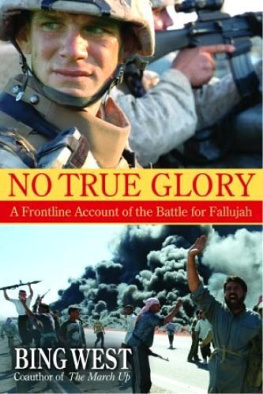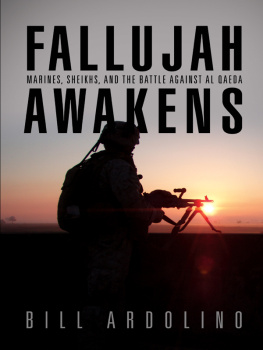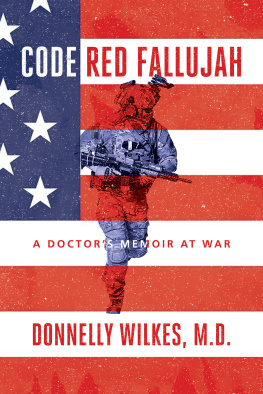


CONTENTS
____
Corporal Daniel Amaya, KIA (Killed In Action)
Corporal Mitch Moorehead, WIA (Wounded In Action)
Lance Corporal Toby Gray, KIA
Corporal Carlos Perez-Gomez, WIA
Corporal Timothy Connors
Lance Corporal Abraham Simpson, KIA
Corporals are the backbone of the infantry.
Supposing you and I, escaping this battle,
Would be able to live on forever, ageless, immortal,
So neither would I myself go on fighting in the foremost
nor would I urge you into the fighting where men win glory.
But now, seeing that the spirits of death stand close about us
In their thousands, no man can turn aside nor escape them,
Let us go on and win glory for ourselves, or yield it to others.
Homer, The Iliad
To high officials given glory, from them much is expected.
MAJOR CHARACTERS
____
Abizaid General (four stars) John P. Abizaid, U.S. Army, commanded CentCom, or Central Command, which included all U.S. forces in Iraq. He reported directly to Secretary of Defense Donald Rumsfeld and spoke directly with President George W. Bush, General Richard Myers, the Chairman of the Joint Chiefs of Staff, and Ambassador Paul Bremer.
Bremer Ambassador L. Paul Bremer III was the presidents envoy to Iraq and director of the Coalition Provisional Authority or CPA. He was responsible for the policies, plans, and budget for the reconstruction of Iraq and its return to sovereignty. Bremer reported to the president through the secretary of defense.
Conway Lieutenant General (three stars) James T. Conway, USMC, commanded the I MEF or First Marine Expeditionary Force in Iraq. I MEF consisted of an air wing, a logistics command, and a ground commandin this case the 1st Marine Division. Conway reported to Lieutenant General Sanchez, the Joint Task Force commander in Baghdad. Conway also spoke directly with Gen Abizaid. He rarely spoke with Bremer.
Drinkwine Lieutenant Colonel Brian M. Drinkwine commanded the paratrooper battalion in Fallujah from September through mid-March. He implemented the second extended American strategy for Fallujah.
Janabi Abdullah Al Janabi was a businessman and a fundamentalist Sunni cleric who emerged as the central insurgent leader in Fallujah. For over a year he also met with American military leaders in Fallujah, including General Mattis.
Sanchez Lieutenant General (three stars) Ricardo S. Sanchez commanded Joint Task Force 7 (JTF 7) in Baghdad. He directed all American and other Coalition forces in Iraq. Sanchez reported directly to Abizaid.
Suleiman Lieutenant Colonel Suleiman Al Marawi commanded a poorly trained Iraqi battalion in Fallujah. He was a strong, proud leader who believed Janabi was bringing destruction and death to the city.
Mattis Major General (two stars) James N. Mattis commanded the twenty-two thousand Marines of the 1st Marine Division. He reported directly to Conway. Mattis was the ground commander at the April battle for Fallujah. He rarely spoke with Abizaid, Sanchez, or Bremer.
Rumsfeld Secretary of Defense Donald R. Rumsfeld was responsible for defense policy worldwide and, after approval by the president, for authorizing Gen Abizaid to carry out major operations. Abizaid in turn would authorize Sanchez, who would authorize Conway, who would direct Mattis to take command of the ground battle. Rumsfeld spoke directly with President Bush, Gen Myers, Gen Abizaid, and Ambassador Bremer. He would occasionally talk with Sanchez but rarely with Conway or Mattis.
Toolan Colonel John Toolan commanded Regimental Combat Team 1, usually numbering four battalions and about six thousand Marines. He was the tactical commander for the April battle of Fallujah and the Marine who met daily with the Iraqis, especially Suleiman. He implemented the third extended American strategy for Fallujah.
Wesley Lieutenant Colonel Eric Wesley was the executive officer of the 2nd Brigade, 3rd Infantry Division. During the summer of 2003 he assisted in designing and implementing the first extended American strategy for Fallujah.
INTRODUCTION
____
THE OBSCURE, HARDSCRABBLE INDUSTRIAL city of Fallujah erupted into the major battle of the Iraqi insurgency, involving fifteen thousand combatants and claiming 153 American and thousands of Iraqi lives. Fallujah provides a cautionary tale about mixing the combustible ingredients of battle and politics. This book describes how it came to do so and why.
The twenty-month struggle for Fallujah had four phases. The first phase began immediately after American forces toppled Saddam Hussein from power in April 2003. That act also toppled the five million Sunnis who had long dominated the twenty million Iraqi Shiites and Kurds. In the aftermath many Sunnis refused to believe they had been removed from power. These former regime elements joined forces with radical Islamic fundamentalists to attack the Americans. Fallujah quickly emerged as a center of the insurgency.
During the summer and fall of 2003, four separate American units in Fallujah applied the classic doctrine for fighting insurgents: namely, they tried to win the hearts and minds of the people who were providing the sea of support in which the insurgents swam. The Americans, though, had little money to spend on economic development; they lacked support from Iraqi leaders; and they responded to attacks with overwhelming firepower, all of which, despite their good intentions, caused resentment.
The second phase began in March 2004, when four American contractors were killed and their bodies mutilated in broad daylight in the heart of the city. The United States Marines were ordered to seize the city, but then, due to international outrage over televised reportage of the assault, were told to stop. For six weeks the Marines engaged in fierce but inconclusive siege warfare.
In the third phase the city was handed over to former Iraqi generals who claimed they could restore order. The Sunnis of Fallujah, the generals explained, were a good people who wanted to be left alone to live under their own leaders. But instead of proclaiming peace, Fallujah promptly began exporting murder. The insurgents who controlled the city ignored the hapless generals, while the arch-terrorist Abu Musab al Zarqawi set up headquarters and dispatched suicide bombers to other cities. Fallujah appeared on nightly news reports to resemble the lair of the monster Grendel, a city of whippings, kidnappings, and beheadings.
In the fourth phase, in the fall of 2004, the Marines were again ordered to seize Fallujah. Hundreds of foreign fighters, drawn to Iraq to fight the infidel invader, awaited them. The MarinesAmericas shock troopsresponded with a full measure of force. The jihadists decided to fight from inside the houses, so once the battle was over, Fallujahs residents returned to a wrecked city.
The extended battle brought to the fore the complex tenacity of the insurgency, the absence of Iraqi leadership, the miscalculations in senior American planning, and the fortitude of the American infantryman.
PROLOGUE
____
LYNCHING AT THE BROOKLYN BRIDGE
THE WEDNESDAY-MORNING TRAFFIC IN FALLUJAH was its usual blue-smoke and horn-blaring self. The sidewalks were packed with unemployed men in scruffy dishdashas or old work trousers and faded shirts, many smoking and most lounging around, with no money, no job, and no prospects. The assassins drove west down the four-lane highway, cluttered with old cars carelessly double-parked, beeping their horn, waving their AK automatic rifles, and gesturing to other drivers to get out of the way. The truck stopped in the middle of the street, and half a dozen men jumped out, some with kaffiyehs wrapped around their faces, others not caring who identified them. One man threw a grenade down the street; the small explosion did not injure anyone but succeeded in driving the onlookers to cover.
Next page







